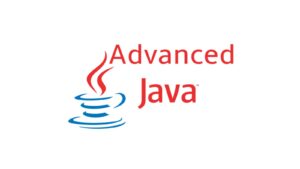
Diploma in Java Full Stack Development
Live online class schedule
Lorem ipsum dolor sit amet, consectetur adipiscing elit. Ut elit tellus, luctus nec ullamcorper mattis, pulvinar dapibus leo.
- Introduction to Java Programming Language
- Data Types, Variables, and Operators
- Control Statements
- Arrays and Strings
- Classes and Objects
- Inheritance and Polymorphism
- Exception Handling
- File Input and Output
- Collections Framework
- HTML, CSS, and JavaScript
- DOM Manipulation
- AJAX
- JSON
- jQuery
- Bootstrap
- Responsive Web Design
- Cross-Browser Compatibility
- Web Performance Optimization
- Servlets and JSPs
- JDBC
- Spring Framework
- Spring Boot
- RESTful Web Services
- Hibernate
- Apache Tomcat
- Database Management Systems
- MySQL/Oracle/PostgreSQL
- Angular
- React
- Vue
- TypeScript
- Webpack
- NPM/Yarn
- Git/GitHub
- Continuous Integration/Continuous Delivery (CI/CD)
- Docker
- Kubernetes
- AWS/Azure/GCP
- Unit Testing
- Integration Testing
- End-to-End Testing
- JUnit
- Mockito
- Selenium
About the course
Learning Java offers several benefits and can be a valuable skill for both beginners and experienced programmers. Here are some reasons why learning Java is beneficial:
Platform Independence: Java is a platform-independent programming language, meaning you can write Java code once and run it on any platform that has a Java Virtual Machine (JVM). This portability makes Java popular for developing applications that can run on different devices and operating systems.
Object-Oriented Programming (OOP): Java is primarily an object-oriented language, which allows you to organize your code into reusable objects. OOP promotes modular design, code reusability, and easier maintenance. Learning Java will help you grasp important concepts of OOP, such as encapsulation, inheritance, and polymorphism, which are fundamental to many modern programming languages.
Wide Range of Applications: Java is widely used in various domains, including web development, mobile app development (Android), enterprise software development, scientific applications, financial systems, and more. Learning Java opens up diverse career opportunities and allows you to work on different types of projects.
Large Community and Resources: Java has a vast and active community of developers. This means you can easily find help, tutorials, libraries, frameworks, and open-source projects to enhance your Java development skills. The extensive community support ensures that Java remains up-to-date and relevant.
Job Opportunities: Java is one of the most in-demand programming languages in the job market. Many companies, especially in enterprise-level development, require Java expertise. Learning Java can increase your chances of landing a job and provides a solid foundation for building a career in software development.
Strong Ecosystem: Java has a robust ecosystem with a rich set of tools, frameworks, and libraries. Frameworks like Spring, Hibernate, and JavaFX, among others, simplify development tasks, increase productivity, and accelerate the development process. Java also has excellent development tools, such as Eclipse, IntelliJ IDEA, and NetBeans, which provide powerful features for coding, debugging, and testing.
Scalability and Performance: Java is known for its scalability and performance. It offers features like automatic memory management (garbage collection), multi-threading support, and optimized execution through the JVM. Java’s performance capabilities make it suitable for developing high-performance systems and handling large-scale applications.
Backward Compatibility: Java places a strong emphasis on backward compatibility, ensuring that older Java code continues to work with newer versions. This stability makes Java a reliable choice for long-term projects and helps protect your investment in learning the language
-
Proficiency in Java Language: You will gain a strong understanding of the Java programming language, including its syntax, data types, control structures, and object-oriented programming concepts. This proficiency allows you to write Java code efficiently and effectively.
-
Object-Oriented Programming (OOP): Java is an object-oriented language, and completing a Java course will help you master OOP principles such as encapsulation, inheritance, polymorphism, and abstraction. You will be able to design and develop modular, reusable, and maintainable code using OOP concepts.
-
Application Development: By completing a Java course, you will acquire the skills to develop various types of applications, ranging from console-based programs to graphical user interfaces (GUIs) and web applications. You will learn how to structure your code, handle user input, manage data, and create interactive and user-friendly applications.
-
Problem-Solving and Algorithmic Thinking: Java courses often focus on problem-solving skills and algorithmic thinking. You will learn how to analyze problems, break them down into smaller components, and devise efficient solutions using Java. This skill is fundamental to software development and applicable to various programming languages.
-
Debugging and Troubleshooting: As you work on Java projects and exercises, you will encounter errors and bugs. Completing a Java course will enhance your ability to debug and troubleshoot issues in your code. You will learn techniques for identifying and fixing errors, using debugging tools, and effectively testing and validating your Java programs.
-
Java Standard Library and Frameworks: A Java course typically covers the Java Standard Library, which provides a wide range of classes and APIs for common programming tasks. You will learn how to leverage these libraries to perform tasks like string manipulation, file handling, networking, and more. Additionally, you may be introduced to popular Java frameworks such as Spring, Spring Boot, which offer advanced features for developing robust applications.
-
Database Connectivity: Many Java applications interact with databases. By completing a Java course, you can develop skills in connecting to databases using JDBC, executing SQL queries, and manipulating data. This skill is crucial for building data-driven applications and working with database systems.
-
Software Engineering Practices: Java courses often emphasize good coding practices and software engineering principles. You will learn about code organization, documentation, version control, and collaborative development. These skills help you write clean, maintainable code and work effectively in software development teams.
-
Project Development and Collaboration: Java courses may involve hands-on projects that allow you to apply your skills to real-world scenarios. Through project work, you will gain experience in developing complete Java applications, collaborating with teammates, managing project requirements, and delivering software solutions.
-
Continuous Learning: Completing a Java course is just the beginning of your journey as a Java developer. The course will instill in you a mindset of continuous learning and exploration. You will become adept at seeking new knowledge, keeping up with industry trends, and expanding your Java skills through self-study and further practice.
Pre-requisites
There are no prerequisites for this course. As it is a instructor-led course the learning path is set in such a way that the freshers can pursue this course.
Who can Join?
This course is recommended for all students and freshers who are interested in creating modern web, desktop, mobile apps, ML/AI and cloud based applications using Java
Choose Training options
Fees
-
Online Session
-
Hands on Labs
-
Online support
-
Placement Assistant
Fees
-
Classroom sessions
-
Hands on Labs
-
Dedicated Support
-
Videos
-
Projects
-
Placement Assistance
